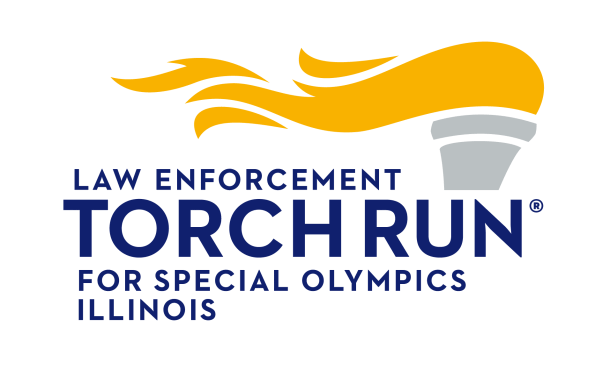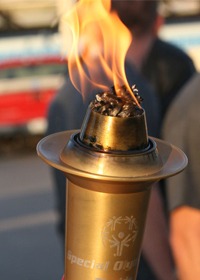 Representatives from the Northern Illinois University Police Department will join participants from the DeKalb and Sycamore Police and DeKalb County Sheriff’s Departments in carrying the “Flame of Hope” in the DeKalb County Law Enforcement Torch Run®, scheduled to take place Sunday, June 8, beginning at 3 p.m.
Representatives from the Northern Illinois University Police Department will join participants from the DeKalb and Sycamore Police and DeKalb County Sheriff’s Departments in carrying the “Flame of Hope” in the DeKalb County Law Enforcement Torch Run®, scheduled to take place Sunday, June 8, beginning at 3 p.m.
The 7.69 mile run begins at the DeKalb County Courthouse in Sycamore, ending at the new DeKalb Police Department located on Lincoln Highway in DeKalb.
Approximately 3,000 officers representing every branch of law enforcement across the state from local police officers to FBI agents will carry the flame nearly 1,500 miles, running through thousands of Illinois communities via 23 different legs (routes) to its final destination. This year’s run will culminate Friday, June 13, with the lighting of the cauldron at Illinois State University’s Hancock Stadium, signaling the opening of the Special Olympics Illinois Summer Games.
The games are Special Olympics Illinois’ premiere sports competition, held June 13 through 15 on the campuses of ISU and Illinois Wesleyan University. Approximately 11,500 people attend the games each year, with more than 4,000 athletes and unified partners competing in six different sports, along with 1,600 coaches, 2,500 volunteers and 3,300 family members.
 The Law Enforcement Torch Run® is the single largest year-round fundraising event benefiting Special Olympics Illinois. The annual intrastate relay and its various fundraising projects have two goals: to raise money and to gain awareness for the athletes who participate in Special Olympics Illinois. The Law Enforcement Torch Run® has raised nearly $28 million over 27 years while increasing awareness of Special Olympics Illinois athletes and their accomplishments.
The Law Enforcement Torch Run® is the single largest year-round fundraising event benefiting Special Olympics Illinois. The annual intrastate relay and its various fundraising projects have two goals: to raise money and to gain awareness for the athletes who participate in Special Olympics Illinois. The Law Enforcement Torch Run® has raised nearly $28 million over 27 years while increasing awareness of Special Olympics Illinois athletes and their accomplishments.
Special Olympics Illinois is a not-for-profit organization offering year-round training and competition in 19 sports for nearly 21,500 athletes with intellectual disabilities and more than 18,500 Young Athletes ages 2-7 with and without intellectual disabilities. Special Olympics programs enhance physical fitness, motor skills, self-confidence, social skills and encourage family support. The first Special Olympics games were held at Soldier Field in July, 1968; the program now is in more than 170 countries.
